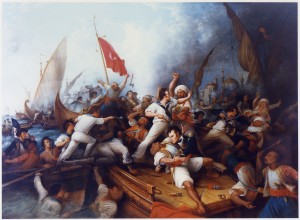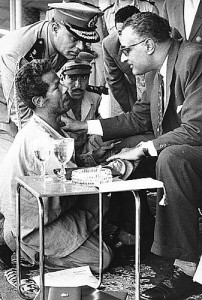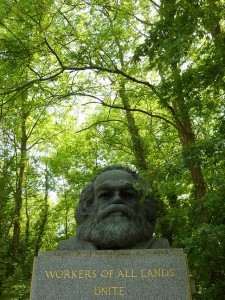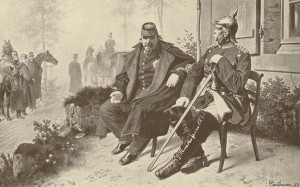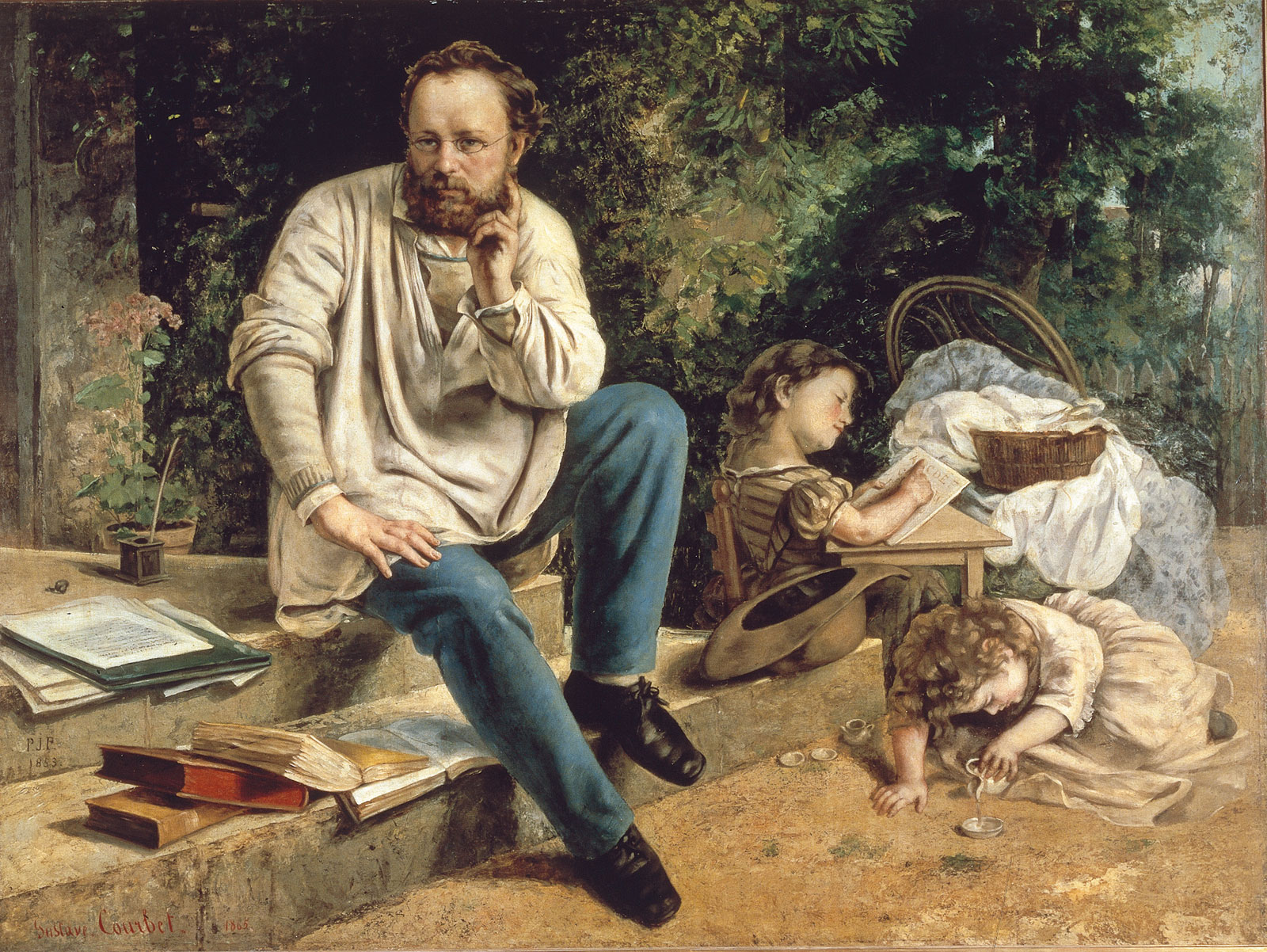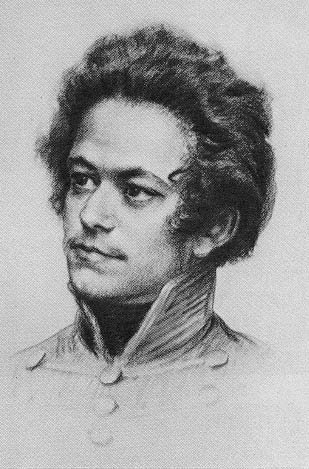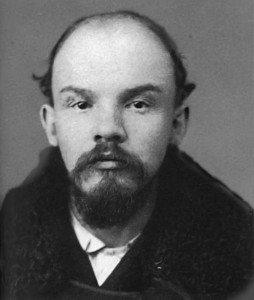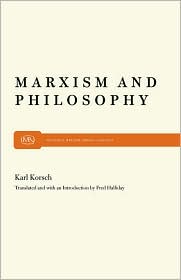Chinoiserie
A critique of the Revolutionary Communist Party, USA’s “New Synthesis”
Review of Communism: The Beginning of a New Stage, Manifesto from the RCP, USA; and Raymond Lotta, Nayi Duniya, and K. J. A., “Alain Badiou’s ‘Politics of Emancipation’: A Communism Locked Within the Confines of the Bourgeois World” Demarcations 1 (Summer–Fall 2009).[1]
Chris Cutrone
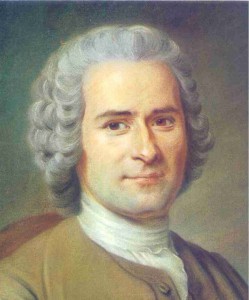
Jean-Jacques Rousseau, portrait painted by Maurice-Quentin La Tour (1754).
Prologue
DAVID BHOLAT ADOPTED, as epigraph for his essay “Beyond Equality,” the following passage from Joseph Schumpeter’s classic 1942 book Capitalism, Socialism and Democracy:
First and foremost, socialism means a new cultural world…. But second — what cultural world?… Some socialists are ready enough with folded hands and the smile of the blessed on their lips, to chant the canticle of justice, equality, freedom in general and freedom from “the exploitation of man by man” in particular, of peace and love, of fetters broken and cultural energies unchained, of new horizons opened, of new dignities revealed. But that is Rousseau adulterated with some Bentham.[2]
Bholat’s essay follows Schumpeter in seeking to demonstrate the inadequacy and problematic character of the call for social “equality,” for which he finds warrant in Marx’s critique of capital. This is most notable in Marx’s statement, echoing the French socialist Louis Blanc, that an emancipated society beyond capital would be governed by the principle of providing “from each according to his ability, to each according to his need.”[3]
Jean-Jacques Rousseau (1712–78) argued, in his 1754 Discourse on the Origin of Inequality, that society alone produced “inequality,” since in nature there are only “differences.” Marx sought to fulfill Rousseau’s demand for a society freed from the necessity of commensurability, of making alike what is unlike, in the commodity form of labor — a society freed from the exigencies of the exchange of labor.
Jeremy Bentham (1748–1832), the founder of Utilitarian philosophy at the end of the 18th century, famously called for society to provide “the greatest good for the greatest number.” Marx considered his project to fulfill this aspiration as well.
The modern society of capital has indeed sought to achieve these various desiderata, of the individual diversity of incommensurable difference, as well as increased wellbeing of all its members, but has consistently failed to do so. A Marxian approach can be regarded as the immanent critique of capital, the critique of capital on its own ground, as expressed by the classical “bourgeois” liberal thinkers such as Rousseau and Bentham at the dawn of modern capitalist society, in that capital fails to fulfill its promise, but it would be desirable to accomplish this.
Schumpeter, writing in the mid-20th century, thought that modern society was moving inexorably toward “socialism,” and that this was due to the unique and potentially crucial role that modern society allowed “intellectuals” to play. The far greater access to education that modern capitalist society made possible entailed the emergence of a stratum of people who could articulate problems for which they were not directly responsible, on behalf of social groups to which they did not belong. This meant the possibility of a more radical critique and the fostering and mobilizing of broader social discontents than had been possible in pre-capitalist society. This role for intellectuals, combined with the inherent structural social problems of capital and the rise of “democratic” politics, created a potentially revolutionary situation in which “socialism,” or the curtailment of capitalist entrepreneurship, was the likely outcome.
Bholat concluded his essay “Beyond Equality” by citing favorably Slavoj Žižek and Jacques Derrida’s critiques, respectively, of “Marx’s tolerance for the defects of first-phase communism,” and of the principle of “equality before the law.”[4]
The possibility of a “dialectical” transformation, the simultaneous negation and fulfillment of capital, its Aufhebung through a “proletarian socialist” politics, as capital’s simultaneous historical realization and overcoming — as Marx conceived it, following Hegel — has proven elusive, but continues to task theoretical accounts inspired by Marxism.
Entre nous
The Maoist Revolutionary Communist Party (RCP), USA published in 2008 the manifesto, Communism: The Beginning of a New Stage. This was followed, in short order, by the launching of a new theoretical journal, Demarcations, whose inaugural issue included a lengthy critique of Alain Badiou by RCP members* Raymond Lotta, Nayi Duniya, and K. J. A., titled “Alain Badiou’s ‘Politics of Emancipation’: A Communism Locked Within the Confines of the Bourgeois World.” Taken together, these and other recent writings of the RCP amount to a significant departure and change in orientation for their tendency of American Maoism. This is noteworthy as they are one of the most prominent Marxist Left organizations in the U.S., helping to organize, for instance, the major anti-war group The World Can’t Wait. The RCP’s spokesperson Sunsara Taylor is regularly invited to represent the radical Left on Fox News and elsewhere. Recently, the RCP has conducted a campaign of interventions featuring Lotta and Taylor as speakers at college and university campuses, including the top elite schools throughout the U.S., on the topic of communism today, in light of the history of the 20th century revolutions in Russia and China and their defeats. In this, the RCP demonstrates a reorientation towards intellectuals as potential cadres for revolutionary politics.[5]
The RCP’s critique of the latter-day and post-Maoist “communist” Alain Badiou’s conception of “radical, anarchic equality” is a part of their program of demonstrating “How Communism Goes Beyond Equality and Why it Must.” It strongly resembles David Bholat’s critique of the traditional Marxist Left in “Beyond Equality.” For, as Bholat wrote, “in light of the world-historical failure of Marxism,” the “one-sided emphasis of historical left movements on equity… might be reevaluated today,” for such discontents remained “vulnerable to fascist elements motivated by ressentiment and revenge” that “represented a reactionary desire… to return to a romanticized, precapitalist moment.”[6]
So, some clarification — and radicalization — of discontents has appeared necessary. For what is offered by such apparently disparate perspectives as Bholat and the RCP is what might be called a “post-postmodernist” politics, in which the radical reconsideration of the experience of 20th century Marxism seems in order. This links to Badiou and Žižek’s attempts to advance what they call the “communist hypothesis.” Žižek has spoken of “the Badiou event” as opening new horizons for both communism and philosophy. Badiou and Žižek share a background in Lacanian and Althusserian “post-structuralist” French thought, in common with other prominent post-New Left thinkers — and former students of Louis Althusser — such as Etienne Balibar and Jacques Rancière. Althusser found, in the Russian and Chinese Revolutions, a salutary challenge to the notion of the Hegelian “logic of history,” that revolutionary change could and indeed did happen as a matter of contingency.[7] Althusser took great inspiration from Mao in China and Lenin in Russia for advancing the possibility of emancipation against a passive expectancy of automatic evolution in the historical process of capital. Michel Foucault took Althusser as license to go for an entire historiography of contingency.[8] For Badiou, this means that emancipation must be conceived of as an “event,” which involves a fundamental reconsideration of ontology.[9] There is a common background for such postmodernist politics, also, in Sartre’s “existentialist” Marxism, the anti-Cartesian phenomenology of Henri Bergson and Maurice Merleau-Ponty, and the “Spinozist” materialism of Georges Bataille.[10] The coincidence of vintage 1960s Maoist New Left Marxism with contemporaneous French thought — Foucault, Deleuze, Derrida — has resulted in a veritable chinoiserie prominent in reconsiderations of Marxism today.[11] But what does the — distinctively French — image of China say about the potential for a reformulated Leftist politics?[12]
Rousseau
The mid-18th century Enlightenment philosophe Rousseau stands as the central figure at the critical crossroads for any consideration of the historical emergence of the Left.[13] Rousseau has haunted the self-understanding of Marxism, and indeed of revolutionary politics more generally, if only for the problematic influence he exercised on the pre-Marxian Left, most infamously in the ideas of the radical Jacobins such as Robespierre in the Great French Revolution. Lenin famously described himself as a “Jacobin indissolubly joined to the organization of the proletariat, which has become conscious of its class interests.”[14] Modern conservatism was in an important sense founded by Edmund Burke’s (1729–97) anti-Jacobin critique of Rousseau.
In his critique of Bruno Bauer’s The Jewish Question (1843), the young Marx cited the following from Rousseau’s Social Contract (1762):
Whoever dares undertake to establish a people’s institutions must feel himself capable of changing, as it were, human nature, of transforming each individual, who by himself is a complete and solitary whole, into a part of a larger whole, from which, in a sense, the individual receives his life and his being, of substituting a limited and mental existence for the physical and independent existence. He has to take from man his own powers, and give him in exchange alien powers which he cannot employ without the help of other men.
Marx wrote that this was “well formulated,” but only as “the abstract notion of political man,” concluding that,
Human emancipation will only be complete when the real, individual man has absorbed into himself the abstract citizen; when as an individual man, in his everyday life, in his work, and in his relationships, he has become a species-being; and when he has recognized and organized his own powers as social powers so that he no longer separates this social power from himself as political power.[15]
The RCP’s Lotta, Duniya and K.J.A., under the chapter heading “Why Alain Badiou is a Rousseauist, and Why We should not be,” point out that Rousseau’s perspective is that of “bourgeois society:”
The forms and content of equality in bourgeois society correspond to a certain mode of production: capitalism, based on commodity production and the interactions it engenders: private ownership, production for profit not need, and exploitation of wage-labor. Commodity production is governed by the exchange of equivalents, the measure of the labor time socially necessary to produce these commodities; that is, by an equal standard.[16]
Like Bholat following Derrida in “Beyond Equality,” Lotta, Duniya, and K.J.A. attack “the standard of ‘equality before the law’ of bourgeois jurisprudence [as] a standard that serves the equal treatment of the capitalist property holders in a society governed by capitalist market relations,” adding that, “for the dispossessed, formal equality masks the condition of fundamental powerlessness.” What Lotta et al. dismiss as “formal equality” is not the liberal conception formulated by Rousseau that Marx cited favorably, precisely in its recognition of the “alienation” of the “changing” of “human nature” in society. Rather, the RCP writers let slip back in the one-sided conception of “politics” that Marx criticized and sought to overcome. For them, the opposition between the social and political that Marx diagnosed as symptomatic of modern capitalist society becomes instead the rigged game between exploiters and exploited. Note the need that Marx identified for the “individual” to “[recognize] and [organize] his own powers as social powers so that he no longer separates this social power from himself as political power,” something quite different from simply removing the “mask” of false “equality” from the condition of the “dispossessed” in “bourgeois democracy.” Where does the RCP’s perspective of revolutionary politics originate? This is made apparent in the central section of their critique of Badiou over the interpretation of the Shanghai Commune, an event in the Great Proletarian Cultural Revolution (GPCR) in China.
La Commune
The GPCR is dear to both Badiou and the RCP. This was the greatest event in the history of Marxism to take place in the era of the 1960s–70s New Left, and it exerted a profound attraction and influence over many at the time. The RCP is a direct product of its broad international impact. It seemed to justify Mao’s claim to be the leading international (and not merely Chinese) opponent of “revisionism,” i.e. of the abdication of proletarian socialist revolution in favor of reformism. Apart from factual questions about what really happened during the Cultural Revolution and the substance of Mao’s own politics, both in China and internationally (thoughtful Maoists do not deny the distortion of Mao’s politics by nationalism, but they tend to gloss over the intra-bureaucratic aspects of the GPCR), the issue of what the Cultural Revolution and Maoism more generally might mean to people, both then and now, is of more pressing concern. After all, the two most forthright arguments in favor of “communism” today are made by Maoists, Badiou and the RCP. It is also significant that both favor the appellation of “communist” over “Marxist,” which both do on the grounds of their understanding of the Cultural Revolution.
The Cultural Revolution is the basis for regarding Mao as making a unique and indispensable contribution to communism. What the Cultural Revolution means to Maoists is fundamentally informed by their conception of capitalism. So, rather than taking sides in or analyzing the social and political phenomenon of the Cultural Revolution per se, it is necessary to examine what has been taken to be its significance. The Chinese Cultural Revolution is perhaps the most significant recent “Jacobin” moment in the history of Marxism, raising again, in the latter part of the 20th century, long-standing questions about the relation between socialism and democracy — the issue of “communism,” in the strict sense.
The significance of the Shanghai Commune of 1967 is contested by Badiou and the RCP. For Badiou it was a model akin to the 1792–94 radical Jacobin period of the French Revolution. In the Shanghai Commune radicalized students (“Red Guards”) overthrew the local Communist Party apparatus, spreading into a workers’ revolt. While initially enthusiastic about this spontaneous “anti-revisionist” upsurge against conservative elements in the CP, Mao and his followers ultimately rejected the Shanghai Commune as a model. They advocated instead the “revolutionary committee” in which the Maoist Communist Party cadres’ paramount leading political character could be preserved. Badiou criticizes this straitjacketing of communism in the “party-state,” whereas the RCP defends Mao’s politics of rejuvenating the Party and purging it of “capitalist roaders” as the necessary and sole revolutionary path.
Badiou, by contrast, sees Mao’s eventual rejection of the Shanghai Commune as a betrayal of “egalitarianism.” For him, the “party-state” is a brake on the radical “democratic” egalitarianism that characterizes “communism” as a historically recurrent political phenomenon. The RCP critiques this conception of “equality” and “direct democracy” as “concealing class interests” and thus being unable to “rise above particular interests.” For instance, according to the RCP, as long as there remains a distinction between “intellectual and manual labor,” intellectuals can come to dominate the social process, even under socialism, thus reproducing a dynamic constantly giving rise to the possible return to capitalism, which is understood primarily as a matter of social and political hierarchy. To the RCP, Badiou is thus prematurely egalitarian.
Badiou conceives of the relation between freedom and equality as an ontological one, in the mathematical terms of set theory, transhistoricizing it. The RCP, while recognizing the historically specific nature of capitalist class struggle, conceives of the role of the revolutionary proletarian party as the political means for suppressing tendencies towards social inequality. In either case, neither Badiou nor the RCP conceives of the transformation of the capitalist mode of production that would allow for overcoming the socially pernicious aspects of specifically capitalist forms of inequality, the dangers of which are understood by Badiou and the RCP rather atavistically. Marx, by contrast, looked forward to the potential for overcoming the conditions of possibility for the reproduction of capitalist class dynamics in the mode of production itself: capital’s overcoming of the need to accumulate the value of surplus labor-time. Marx saw the historical potential to overcome this socially mediating aspect of labor in automated machine production. However, Marx also foresaw that, short of socialism, the drive to accumulate surplus-value results in producing a surplus population, an “industrial reserve army” of potential “workers” who thus remain vulnerable to exploitation. A politics based only in their “democratic” discontents can result, not in the overcoming of the social need for labor, but only in the (capitalist) demand for more labor. Or, as Max Horkheimer, director of the Marxist Frankfurt Institute for Social Research, put it, machines “have made not work but the workers superfluous.”[17]
For the RCP, Mao in the Cultural Revolution addressed in new and effective ways problems of the “transition to socialism” never attempted under Stalin. The RCP criticizes Stalin for his failed “methods” in advancing the transition to socialism, a failure Mao overcame in the Cultural Revolution in China 1966–76. The RCP celebrates the egalitarian-emancipatory impulse of the Cultural Revolution while also praising Mao’s guidance and political leadership of the process by which the “capitalist” road to China’s development was politically overcome and avoided. This struggle ended, according to the RCP, with Mao’s death and the subsequent purging of his followers, known as the “Gang of Four,” in 1976, embarking China upon its capitalist development up to the present.
Badiou explicitly attacks the limitations of Marxism in general, and not merely the “party-state” form of political rule (for which he holds Marxism responsible), for failing to recognize how the emancipatory striving of “equality” goes “beyond class.” This is why he favors the designation “communism” to “Marxism.” The RCP (rightly) smells a rat in this attempt by Badiou to take communism “beyond” anti-capitalist class-struggle politics. But in so doing they do not pause to reflect on the subordinate position of class struggle in Marx’s own conception of the possibility of overcoming capital.
For Marx, the political-economic struggle of the specifically modern classes of capitalists and workers is a projection of the contradiction of capital. The RCP, by contrast, regards the class struggle as constituting the social contradiction in capital. This flows from their understanding of the contradiction of capital as existing between the socialized forces of production and the privatized and hence capitalist relations of production. Privileged empowerment, whether in the form of capitalist private property or in more developed intellectual capacities, is the source rather than the result of the contradiction of capital in the RCP’s traditional “Marxist” view. For the RCP, Badiou’s perspective of radical democratic “equality” does not address such inherent social advantage that intellectuals would enjoy even under socialism, presenting the constant threat of defeating the struggle for socialism.[18]
But the RCP does not stop at upholding Mao in the Cultural Revolution as a model for revolutionary politics. Rather, they attempt a “new synthesis” in which the relation of Marx, Lenin and Mao as historical figures is reformulated to provide for a 21st century socialist politics that could still learn from but overcome the limitations of the 20th century experience of the Russian and Chinese Revolutions.
The “new synthesis”
According to a traditional Maoist view, the RCP considers the historical trajectory from Marx through Lenin to Mao as a progress in the theory and practice of the struggle for socialism. But they also detect distinct limitations among all three historical figures and so regard them as importantly complementary rather than successive. For the RCP’s “new synthesis,” Marx and Lenin can still address the shortcomings of Mao, rather than the latter simply building upon the former. How so?
It is important first to consider the significance of this change in the RCP’s thinking from traditional Maoism. The RCP’s “new synthesis” was the cause of a split in the RCP, with some, including Mike Ely, going on to form the Kasama Project. The RCP replies to criticism of their current articulations of the limitations of the Russian and Chinese Revolutions with reference to earlier criticism of the RCP, over the course of the past three decades, for reducing Communism to a “tattered flag” in their reconsideration of this history. But the RCP should be commended for taking this risk.
The RCP struggles in explaining and relating the limitations of the three principal thinkers in the tradition they look towards for “communism.” With Marx, there is the limitation of relatively lacking historical experience of socialist revolution. Only the Paris Commune figures for this history. With Lenin, the limitations of the Bolshevik Revolution are displaced in the RCP’s evaluation of, not Lenin, but Stalin’s attempt to build “socialism” in the 1920s–30s. Like the disastrous Great Leap Forward in China (1958–61), the first Five-Year Plan in the Soviet Union (1928–33), a period of “revolutionary” militancy in the history of Stalin’s rule, is glossed over by the RCP in evaluating the Russian and Chinese 20th century experiences of attempts to “build socialism.”[19]
For the RCP, Mao represents a breakthrough. Through his leadership of the Chinese Communist Party, the limitations of the experience of Stalinism in the Soviet Union were overcome, in the Cultural Revolution in China of the 1960s–70s. But none of these are examples of success — socialism, let alone communism, has not yet been achieved — and they do not exactly add up, but rather require a “synthesis.”
Mao provides a salutary contribution only the degree to which the Cultural Revolution overcame the problem of Stalinist “methods,” which are considered bureaucratic and authoritarian in the sense of stifling revolutionary initiative: Stalin did the right things but in the wrong ways. Not secretly manipulated purge “trials,” but people’s justice would have been the better way to stave off the threat of the “capitalist road” in the USSR of the 1930s. Most telling about the RCP’s “new synthesis” is how they conceive its first two figures. For the RCP, a combination of Marx and Lenin taken without Mao becomes a perspective of “Eurocentric world revolution.” This is because, in the RCP’s estimation, there is a significant difference between Lenin and “Leninism,” the degree to which the former, according to the RCP, “did not always live up” to the latter, and the latter is assimilated to what are really phenomena of Stalinism and Maoism, building “socialism in one country,” in which Mao’s own practice, especially in the Cultural Revolution, takes priority. But this begs the question of the Marxist perspective on “world revolution” — and the need for revolution in the U.S., which Marx and Lenin themselves thought was key. Instead, the problem of socialism in China dominates the RCP’s historical imagination of revolution.
World revolution
Kant, in his theses in “Idea for a Universal History from a Cosmopolitan Point of View” (1784), addressed Rousseau as follows. Kant warned of the danger that,
[T]he vitality of mankind may fall asleep…. Until this last step to a union of states is taken, which is the halfway mark in the development of mankind, human nature must suffer the cruelest hardships under the guise of external well-being; and Rousseau was not far wrong in preferring the state of savages, so long, that is, as the last stage to which the human race must climb is not attained…. [Mere civilization,] however, is nothing but pretense and glittering misery. In such a condition the human species will no doubt remain until… it works its way out of the chaotic conditions of its international relations.[20]
Marx considered his political project to be a continuation of Kant’s, no less than Rousseau’s or Bentham’s, albeit under the changed historical conditions of post-Industrial Revolution capitalism, in which “international relations” expressed not merely an unenlightened state, but the social contradictions of the civilization of global capital.[21] Writing on the Paris Commune of 1870–71, Marx addressed the antithetical forms of cosmopolitanism in capital:
If the Commune was thus the true representative of all the healthy elements of French society, and therefore the truly national government, it was, at the same time, as a working men’s government, as the bold champion of the emancipation of labor, emphatically international. Within sight of that Prussian army, that had annexed to Germany two French provinces, the Commune annexed to France the working people all over the world…. The [preceding] Second Empire [by contrast] had been the jubilee of cosmopolitan blackleggism, the rakes of all countries rushing in at its call for a share in its orgies and in the plunder of the French people.[22]
The RCP remains hampered by the Stalinist perspective of building “socialism in one country,” at the expense of a direct politics of world revolution that characterized the Marxism of Marx’s own time, in the First International. And so the RCP fails to recognize the degree to which Marx’s own politics was “emphatically international” in nature. As Marx scholar Moishe Postone put it,
Now, the revolution, as imagined by Trotsky — because it’s Trotsky who really influences Lenin in 1918 — entailed the idea of permanent revolution, in that, revolution in the East would spark revolution in the West. But I think Trotsky had no illusions about the Soviet Union being socialist. This was the point of his debate with Stalin. The problem is that both were right. That is, Trotsky was right: there is no such thing as “socialism in one country.” Stalin was right, on the other hand, in claiming that this was the only road that they had open to them once revolution failed in the West, between 1918–1923. Now, did it have to be done with the terror of Stalin? That’s a very complicated question, but there was terror and it was enormous, and we don’t do ourselves a service by neglecting that. In a sense it becomes an active will against history, as wild as claiming that “history is on our side.”[23]
Bob Avakian, the leader of the RCP, writing about “Leninism as the bridge,” put the matter of the relation between Marx, Lenin and Mao this way: “Marxism without Leninism is Eurocentric social-chauvinism and social democracy. Maoism without Leninism is nationalism (and also, in certain contexts, social-chauvinism) and bourgeois democracy.”[24] But Avakian and the RCP have a fundamental ambivalence about Lenin. In the same article, Avakian wrote that, “as stressed before there is Leninism and there is Lenin, and if Lenin didn’t always live up to Leninism, that doesn’t make Leninism any less than what it is.” This is because, for the RCP, “Leninism” is in fact Stalinism, to which they recognize Lenin’s actual politics cannot be assimilated. It is therefore a standing question of what remains of Marx and Lenin when they are unhitched from the Stalinist-Maoist train of 20th century “communism,” the eventual course of the Russian and Chinese Revolutions to which the RCP points for inspiration and guidance. But the RCP’s imagination has always been fired more by the Chinese than the Russian experience. If “Leninism” was a historical “bridge,” it led to Mao’s China.
The image of China
China has provided a Rococo mirror reflecting global realities, whether in the 18th or the 20th and 21st centuries. The Middle Kingdom has stood, spectacular and confounding, for attempts to comprehend in social imagination both civilization and barbarism, now as then. The ancien régime at Versailles awaiting its historical fate would have liked to close itself up in a Forbidden City; the fervid imaginations of the 18th century philosophes such as Rousseau would have liked to breach the walls of its decadent customs. Both projected their world through the prism of China, which seemed to condense and refract at once all the splendors and horrors — Kant’s “glittering misery” — of society. This has also been true of the Left from the latter part of the 20th century to the present. The very existence of China has seemed to suggest some obscure potential for the future of humanity, both thrilling and terrifying. What if China were indeed the center of the world, as many on the Left have wished, ever since the 1960s?
If today China strikes the imagination as a peculiar authoritarian “communist” capitalist powerhouse that may end up leading the world in the 21st century, in the 1960s the Cultural Revolution symbolized China. Immediately prior to the student and worker upheaval in France of May 1968, Jean-Luc Godard directed his film La Chinoise (1967) about young revolutionaries in Paris. At around the same time, Horkheimer worried about the appearance of “Chinese on the Rhine,” as students began reading and quoting from Mao’s Little Red Book. If in the 18th century the Jacobin revolutionaries wanted France not to be China, in the 1960s would-be French revolutionaries wanted China to be the revolutionary France of the late 20th century.
In his critique of Jacobinism, Burke wrote that,
[T]he age of chivalry is gone: that of sophisters, economists, and calculators, has succeeded…. The unbought grace of life… is gone!… All the pleasing illusions… which harmonized the different shades of life, and which, by a bland assimilation, incorporated into politics the sentiments which beautify and soften private society, are to be dissolved by this new conquering empire of light and reason.
On this scheme of things, a king is but a man; a queen is but a woman; a woman is but an animal; and an animal not of the highest order…. On the scheme of this barbarous philosophy, which is the offspring of cold hearts and muddy understandings… laws are to be supported only by their terrors, and by the concern, which each individual may find in them, from his own private speculations, or can spare to them from his own private interests.[25]
Still, the Jacobin terror continues. Today in Communist China, a bribery case in producing chemically adulterated pharmaceuticals, baby milk formula, and pet food results in a death sentence, to prevent any decrease in demand from the United States. Chinese authorities dismiss the criticism made on human rights grounds, pointing to the need to be vigilant against a constant threat of “corruption.” No doubt American consumers wonder what such swift “justice” could do to improve corporate behavior in the U.S.
The connection between revolutionary France and China in the bourgeois epoch, from the 18th century through the 20th century to the present, is summed up well in an apocryphal quip supposedly made by the Chinese Communist Premier Zhou Enlai, in response to a question about the historical significance of the French Revolution: Zhou said it was still “too soon to tell.” Because of its Revolution in the 20th century, China came to have cast upon it the long shadow of Jacobinism and Rousseau’s 18th century critique of social inequality. But, as Marx discovered long ago, inequality is not the cause but the effect of capital. Such confusion has contributed to the perspective of “Third World” revolution that had its heyday in the post-WWII Left — after the 1949 Chinese Revolution — and that still stalks the imagination of emancipatory politics today. Not only post-postmodernist neo-communists such as Badiou, but also Maoists in the more rigorous 1960s–70s tradition such as the RCP, remain beholden to the specter of inequality in the modern world.
China, as a result of its 20th century revolutionary transformation, has gone from being like the India of the 18th century, its traditional ways of life breaking down and swamped in pre-capitalist obscurity, confronted with the dynamics of global capitalism, to becoming something like a potential Britain of the 18th century — the manufacturing “workshop of the world” — albeit in the profoundly changed circumstances of the 21st century. As Marx, in a 1858 letter to Engels, pointed out about his own time,
There is no denying that bourgeois society has for the second time experienced its 16th century, a 16th century which, I hope, will sound its death knell just as the first ushered it into the world. The proper task of bourgeois society is the creation of the world market, at least in outline, and of the production based on that market…. For us, the difficult question is this: [in Europe] revolution is imminent and will, moreover, instantly assume a socialist character. Will it not necessarily be crushed in this little corner of the earth, since the movement of bourgeois society is still, in the ascendant over a far greater area?[26]
What the 16th century meant to Marx was the “primitive accumulation of capital,” the process by which society was transformed, through the liquidation of the peasantry, in the emergence of the modern working class and the bourgeois social relations of its existence. If this process continued in the 19th century, beyond Britain, through the rest of Europe and the United States and Japan, in the 20th century it proceeded in Asia — through the Russian and Chinese Revolutions. The reconstitution of capital in the 19th century, unleashing a brutal process of late colonial expansion, was, to Marx’s mind, not only unnecessary and hence tragic, but also regressive and potentially counterrevolutionary. Marx’s warning should have resounded loudly through the “revolutionary” history of Marxism in the 20th century, but was instead repressed and forgotten.
For Marx and Engels, it was not a matter of China and other countries, newly swept into the maelstrom of capitalist development by the mid-19th century, “catching up” with Britain and other more “advanced” areas, but rather the possibility of the social and political turbulence in such “colonial” zones having any progressive-emancipatory impact on global capital at its core. As Marx wrote, in The Class Struggles in France, 1848–50, about the relation of England to other countries,
Just as the period of crisis began later [elsewhere] than in England, so also did prosperity. The process originated in England, which is the demiurge of the bourgeois cosmos. [Elsewhere] the various phases of the cycle repeatedly experienced by bourgeois society assume a secondary and tertiary form…. Violent outbreaks naturally erupt sooner at the extremities of the bourgeois body than in its heart, because in the latter the possibilities of accommodation are greater than in the former. On the other hand, the degree to which revolutions [elsewhere] affect England is at the same time the [barometer] that indicates to what extent these revolutions really put into question bourgeois life conditions, and to what extent they touch only their political formations.
On this all the reactionary attempts to hold back bourgeois development will rebound just as much as will all the ethical indignation and all the enraptured proclamations of the democrats.[27]
This means that the “democratic” politics that engenders “ethical indignation” at the rank inequality in global capital remains woefully inadequate to the task of overcoming the “bourgeois world” within which the RCP accuses Badiou et al. of remaining “locked.” For subsequent history has clearly shown that the Chinese Revolution under Mao remained trapped in global capital, despite the “socialist” ferment of the Great Proletarian Cultural Revolution that gripped the imagination of the international Left of the time, “Maoist” and otherwise.[28] Without revolutionary socialist consequences in the “heart” of the bourgeois world, revolutions in countries such as China cannot, according to Marx, “really put into question bourgeois life conditions” but “touch only their political formations.” As Engels put it, in a 1882 letter to the leading German Social Democratic Party Marxist theorist Karl Kautsky,
[T]he countries inhabited by a native population, which are simply subjugated… must be taken over for the time being by the [world] proletariat and led as rapidly as possible towards independence. How this process will develop is difficult to say… [Such places] will perhaps, indeed very probably, produce a revolution… and [this] would certainly be the best thing for us. We shall have enough to do at home. Once Europe is reorganized [in socialism], and North America, that will furnish such colossal power and such an example that the semi-civilized countries will follow in their wake of their own accord. Economic needs alone will be responsible for this. But as to what social and political phases these countries will then have to pass through before they likewise arrive at socialist organization, we to-day can only advance rather idle hypotheses.[29]
“Locked within the confines of the bourgeois world”
Despite the RCP’s critique of the post-1960s New Left neo-communism of Badiou, and its partial recognition that Marx and the best of Marxism sought to go beyond “bourgeois” discontents and demands for equality in capital, the RCP perspective on Marxism remains compromised by its focus on capitalist inequality. This leads to an ambivalent and confused conception of the potential role of “intellectuals” in revolutionary politics — a role highlighted in the mid-20th century by even such unreservedly “bourgeois” perspectives such as that of Joseph Schumpeter, and also by figures influential for the 1960s New Left such as C. Wright Mills.[30] The RCP, along with other tendencies of post-New Left politics preoccupied by problems of inequality and hierarchy, such as neo-anarchism, suspects intellectuals of containing the germ for reproducing capitalism through inequality. Likewise, the RCP remains confused about the supposed problem of a “Euro-” or “Western”-centric perspective on “world revolution.” In this sense, the RCP remains trapped by the preoccupations of 1960s-era New Left Maoism in which they originated, despite their attempts to recover the critical purchase of the earlier revolutionary politics of Marx and Lenin. Despite their intended critical approach to this history, they fail to consider how Maoism may have represented a retreat rather than an advance from such revolutionary Marxism. For, as Lenin recognized, the best of Marxist revolutionary politics was not opposed to but rather necessarily stood within the tradition of Rousseau and the radical bourgeois intellectual “Jacobin” legacy of the 18th century, while attempting to transcend it.[31] Like it or not, and either for ill or for good, we remain “locked in the bourgeois world,” within whose conditions we must try to make any possible revolution. | §
Originally published in The Platypus Review #26 (August 2010).
* Correction: It should not be assumed that writers for Demarcations are members of the RCP.
1. For Communism: The Beginning of a New Stage, see <http://www.rwor.org/Manifesto/Manifesto.html>. Lotta et al. is available online at <http://www.demarcations-journal.org/issue01/demarcations_badiou.html>.
2. David Bholat, “Beyond Equality,” Rethinking Marxism vol. 22 no. 2 (April 2010), 272–284.
3. Marx, Critique of the Gotha Program (1875), in Robert C. Tucker, ed., The Marx-Engels Reader (New York: Norton, 2nd ed., 1978), 531.
4. Bholat, “Beyond Equality,” 282.
5. See “An Open Letter from Raymond Lotta to Tony Judt and the NYU Community on the Responsibility of Intellectuals to the Truth, Including and Especially the Truth about Communism,” in Revolution #180 (October 25, 2009), available online at <http://revcom.us/a/180/Lotta_Open_Letter-en.html>, in which Lotta states that,
Yes, revolutionary power must be held on to: a new state power and the overall leadership of a vanguard party are indispensable. But leadership must be exercised in ways that are, in certain important and crucial respects, different from how this was understood and practiced in the past. This [RCP’s] new synthesis recognizes the indispensable role of intellectual ferment and dissent in socialist society.
6. Bholat, “Beyond Equality,” 282.
7. See Louis Althusser, “Contradiction and Overdetermination” (1962), New Left Review I/41 (January–February 1967), 15–35. Also in For Marx (1965), trans. Ben Brewster (London: New Left Books, 1977), 87–116.
8. See, for instance, Michel Foucault, “Nietzsche, Genealogy, History” (1971), in Language, Counter-Memory, Practice: Selected Essays and Interviews, ed. D. F. Bouchard (Ithaca: Cornell University Press, 1977), 139–164, available online at <http://www.scribd.com/doc/4475734/foucault-nietzsche-genealogy-history>, in which Foucault ignored that Nietzsche’s famous On the Genealogy of Morals (1887) was “a polemic” against any such “genealogy,” and so turned Nietzsche, in keeping with Foucault’s own intent, from a philosopher of freedom into freedom’s “deconstructionist”:
In this sense, genealogy returns to the… history that Nietzsche recognized in [his 1874 essay “On the Use and Abuse of History for Life”]…. [But] the critique of the injustices of the past by a truth held by men in the present becomes the destruction of the man who maintains knowledge by the injustice proper to the will to knowledge. (164)
9. See Alain Badiou, Being and Event, trans. Oliver Feltham (New York: Continuum, 2007).
10. See the interview with Badiou by Filippo del Luchesse and Jason Smith, conducted in Los Angeles February 7, 2007, “ ‘We Need a Popular Discipline’: Contemporary Politics and the Crisis of the Negative,” Critical Inquiry 34, no. 4 (Summer 2008), 645–659.
11. See Richard Wolin, The Wind from the East: French Intellectuals, the Cultural Revolution, and the Legacy of the 1960s (Princeton: Princeton University Press, 2010).
12. See Peter Hallward’s essay on Badiou’s Logiques des Mondes (Logics of Worlds), “Order and Event,” New Left Review 53 (September–October 2008).
13. As James Miller, author of The Passion of Michel Foucault (2000), put it in his 1992 introduction to Rousseau’s Discourse on the Origin of Inequality (Indianapolis: Hackett, 1992),
The principle of freedom and its corollary, “perfectibility”… suggest that the possibilities for being human are both multiple and, literally, endless…. Contemporaries like Kant well understood the novelty and radical implications of Rousseau’s new principle of freedom [and] appreciated his unusual stress on history as the site where the true nature of our species is simultaneously realized and perverted, revealed and distorted. A new way of thinking about the human condition had appeared…. As Hegel put it, “The principle of freedom dawned on the world in Rousseau, and gave infinite strength to man, who thus apprehended himself as infinite.” (xv)
14. Quoted by Rosa Luxemburg in Organizational Questions of Russian Social Democracy (1904), available in English translation as Leninism or Marxism? in The Russian Revolution and Leninism or Marxism? (Ann Arbor: University of Michigan Press, 1961), available online at <http://www.marxistsfr.org/archive/luxemburg/1904/questions-rsd/ch01.htm>. Luxemburg’s pamphlet was a critique of Lenin, One Step Forward, Two Steps Back: The Crisis in our Party (1904), available online at <http://www.marxists.org/archive/lenin/works/1904/onestep/q.htm>
15. Marx, “On The Jewish Question,” in Tucker, ed., Marx-Engels Reader, 46.
16. Raymond Lotta, Nayi Duniya, and K. J. A., Alain Badiou’s “Politics of Emancipation:” A Communism Locked Within the Confines of the Bourgeois World. Available online at <http://www.demarcations-journal.org/issue01/demarcations_badiou.html>.
17. Max Horkheimer, “The Authoritarian State” (1940), in The Essential Frankfurt School Reader, Andrew Arato and Eike Gebhardt, eds. (New York: Continuum, 2005), 95.
18. There is an important affinity here with the anarchism of Noam Chomsky and Michael Albert, who consider Marxism to be an ideology of the aspirations to social domination by the “coordinator class” of intellectuals, which is how they understand the results of, e.g., the Russian and Chinese Revolutions. In this view, Marxism is the means by which the intellectuals harness the class struggle of the workers for other, non-emancipatory ends. Their understanding of the “party-state” is the regime of the coordinator class.
19. The first Five-Year Plan in the USSR saw the accelerated collectivization of agriculture, in which the Communists unleashed “class struggle” in the countryside, with great popular participation. This coincided with the Communist International’s policy of refusing any political alliances with reformists, whom they dubbed “social fascists,” during this period, which they considered the advent of revolution, following the Great Crash. Such extremism caused, not only mass starvation and brutalization of life in the USSR — whose failures to “build socialism” were blamed on “Trotskyite wreckers,” leading to the Purge Trials in the mid- to late 1930s — but also the eventual victory of the Nazis in Germany. Just as the Purge Trials in the USSR were in response to failures of the Five-Year Plans, the Cultural Revolution in China was a response to the failure of the Great Leap Forward.
20. Immanuel Kant, “Idea for a Universal History from a Cosmopolitan Point of View,” trans. Lewis White Beck, in Kant on History (Indianapolis: Bobbs-Merrill, 1963), 11–25. Also available online at <http://www.marxists.org/reference/subject/ethics/kant/universal-history.htm>.
21. See, for instance, the British Trotskyist Cliff Slaughter’s argument, in “What is Revolutionary Leadership?” (1960), available online at <http://www.marxists.org/history/etol/writers/slaughter/1960/10/leadership.html>, in which he pointed out about Stalinism that,
As a part of [the process of Stalinization], certain theoretical distortions of Marxism play an important part. Above all, Marxism is twisted into an economic determinism. The dialectic is abstracted from history and reimposed on social development as a series of fixed stages. Instead of the rich variety and conflict of human history we have the natural series of slavery, feudalism, capitalism and socialism through which all societies pass…. An apparent touch of flexibility is given to this schematic picture by the doctrine that different countries will find their “own” roads to Socialism, learning from the USSR but adapting to their particular national characteristics. This is of course a mechanical caricature of historical materialism. The connection between the struggles of the working class for Socialism in, say, Britain, Russia and Vietnam, is not at all in the greater or lesser degree of similarity of social structure of those countries, but in the organic interdependence of their struggles. Capitalism is an international phenomenon, and the working class is an international force.
22. Marx, The Civil War in France, in Tucker, ed., Marx-Engels Reader, 638. Also available online at <http://www.marxists.org/archive/marx/works/1871/civil-war-france/ch05.htm>.
23. Moishe Postone, “Marx after Marxism,” interview by Benjamin Blumberg and Pam C. Nogales C., Platypus Review 3 (March 2008). Available online at <http://platypus1917.org/2008/03/01/marx-after-marxism-an-interview-with-moishe-postone/>.
24. Bob Avakian, Conquer the World? The International Proletariat Can and Must, III. “Leninism as the Bridge,” available online at <http://www.rwor.org/bob_avakian/conquerworld/index.htm#section_III>.
25. Edmund Burke, Reflections on the Revolution in France [1790], J. C. D. Clark, ed. (Standford: Stanford University Press, 2001), 239–240. Also available online at <http://www.constitution.org/eb/rev_fran.htm>.
26. See “Europocentric World Revolution,” in Tucker, ed., Marx-Engels Reader, 676. The selection in Tucker, which omits the first sentence, is from a letter from Marx to Engels of October 8, 1858, available online at <http://www.marxists.org/archive/marx/works/1858/letters/58_10_08.htm>.
27. Marx, The Class Struggles in France, 1848–1850, in Tucker, ed., Marx-Engels Reader, 593. Also available online at <http://www.marxists.org/archive/marx/works/1850/class-struggles-france/ch04.htm>.
28. For instance, even many avowed “Trotskyists” were fascinated and inspired by the GPCR. See, for example, Gerry Healy and David North’s International Committee of the Fourth International’s British journal Newsline of January 21, 1967, where an article by Michael Banda stated that “the best elements led by Mao and Lin Piao have been forced to go outside the framework of the Party and call on the youth and the working class to intervene [in this] anti-bureaucratic [fight].” See David North, The Heritage We Defend: A Contribution to the History of the Fourth International (Detroit: Labor Publications, 1988), 424. North, who became critical of Banda’s positive perspective on Mao in the Cultural Revolution, is currently the leader of the international tendency of which the Socialist Equality Party is the U.S. section.
29. See “Europocentric World Revolution,” in Tucker, ed., Marx-Engels Reader, 677. The complete letter from Engels to Kautsky of September 12, 1882 is also available online at <http://www.marxists.org/archive/marx/works/1882/letters/82_09_12.htm>.
30. See C. Wright Mills, “Letter to the New Left,” New Left Review I/5 (September–October 1960), 18–23.
31. Georg Lukács addressed such transcendence in his eulogy, “Lenin — Theoretician of Practice” (1924), available online at <http://www.marxists.org/archive/lukacs/works/xxxx/lenin.htm>. It is also included as part of the “Postcript 1967,” in Lukács, Lenin: A Study on the Unity of His Thought, trans. Nicholas Jacobs (Cambridge, MA: MIT Press, 1970), in which Lukács described Lenin as follows:
In the chain of democratic revolutions in modern times two types of leaders, poles apart, made their appearance, embodied by men such as Danton and Robespierre, in both reality and literature….
Lenin is the first representative of an entirely new type, a tertium datur, as opposed to the two extremes. (93)
But Marx was also a representative of this new type of revolutionary intellectual.
